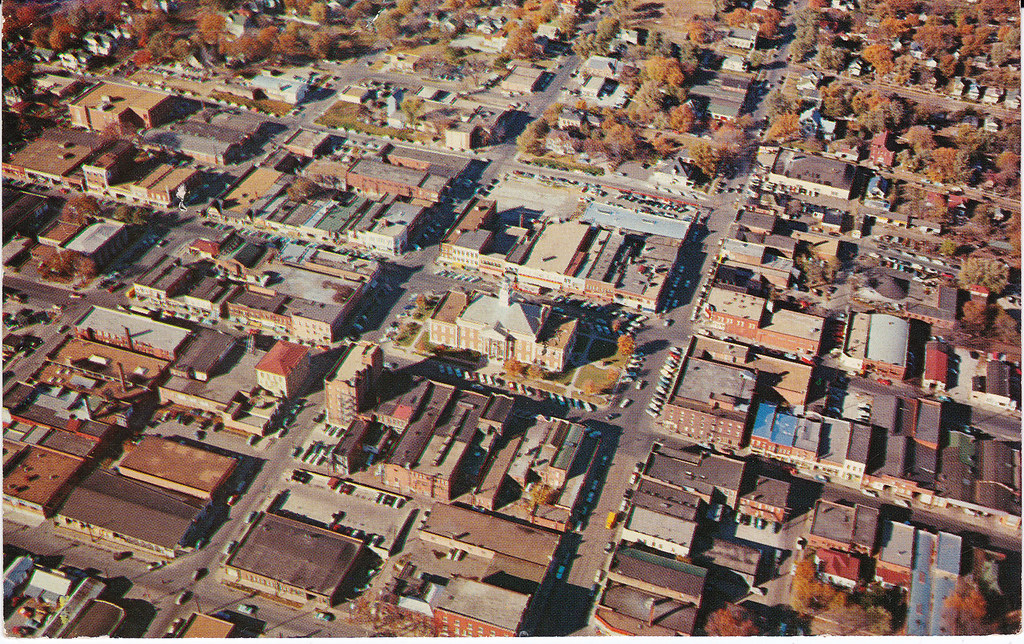
by Laura Lengnick | Jan 20, 2019 | Educating, Speaking
Headed to Independence, Missouri this Wednesday for the 2019 Mid-America Organic Association Conference. The theme of this year’s conference is “Cultivating Resilience.” I’ll open the conference with a keynote on Thursday morning, teach three workshops on Thursday, Friday and Saturday, and host a climate listening session on Saturday. Looking forward to learning a lot and being inspired by all the great workshops, meeting some new friends, and catching up with old friends like Resilient Agriculture farmers Ron Rosmann of Farm Sweet Farm LLC and Gail Fuller of Fuller Farms and G & L Whole Food – both are scheduled to teach at the conference.
Check out more about the workshop here!

by Laura Lengnick | Jan 3, 2019 | News
Looking forward to a busy spring schedule sharing the good news about the climate change solutions in resilient agriculture and food systems! Over the next few months, I’ll be working in North Carolina, Missouri, New York, Illinois, Michigan, Oregon, and Wisconsin with farmers and ranchers, agricultural educators, researchers and extension agents, students studying sustainable agriculture and food systems, ecological landscapers, sustainable wine producers, and climate change adaptation professionals. If I’ll be in your neck of the woods, please stop by a say hi!
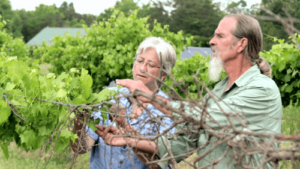
by Laura Lengnick | Oct 16, 2017 | News

Laura and Ken Dawson discuss the resilience of native grapes at Maple Springs Garden in Cedar Grove NC Credit Climate LIstening Project
I am looking forward to 3 days of learning and sharing ideas this coming week in the great state of Vermont – a national leader in practical and credible strategies for cultivating resilient communities – especially ag and food systems! I’ll be talking resilient agriculture and food systems with faculty, staff and students at UVM on Wednesday (10/18) and at Middlebury College on Thursday (10/19).
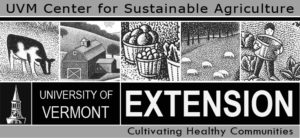 At UVM on Wednesday, I’ll focus on applications of resilience science to farm and food system education, research and development programs, where I will also meet with faculty and staff working in the Farming and Climate Change program at the Center for Sustainable Agriculture. The Center is doing some very innovative work to develop economic case studies of climate adaptation, explore the potential of ecosystem services to enhance climate resilience of agroecosystems, and prepare farmers and foresters in the Northeast for the challenges that climate change will pose for their businesses.
At UVM on Wednesday, I’ll focus on applications of resilience science to farm and food system education, research and development programs, where I will also meet with faculty and staff working in the Farming and Climate Change program at the Center for Sustainable Agriculture. The Center is doing some very innovative work to develop economic case studies of climate adaptation, explore the potential of ecosystem services to enhance climate resilience of agroecosystems, and prepare farmers and foresters in the Northeast for the challenges that climate change will pose for their businesses.
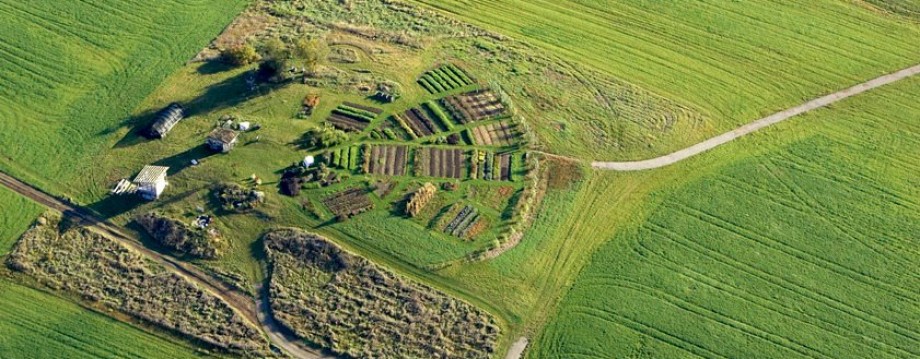
The Organic Farm at Middlebury College, Vermont
I’ll be at Middlebury College on Thursday to talk food system resilience, with a focus on what it will take to put the U.S. food system on the path to resilient food future. While at Middlebury, I’ll tour the student farm (celebrating it’s 15th year this year!)and talk with students in the Global Food Program about the work they are doing, at the college and beyond, to create solutions to some of the planet’s most challenging problems.
You can meet me at lunchtime seminars on campus both days or send me an email me if you would like to meet some other time while I’m on campus. Thanks to the UVM Plant and Soil Science Department and Woodin Colloquium Series, sponsored by the Environmental Studies Department at Middlebury for supporting my visit!
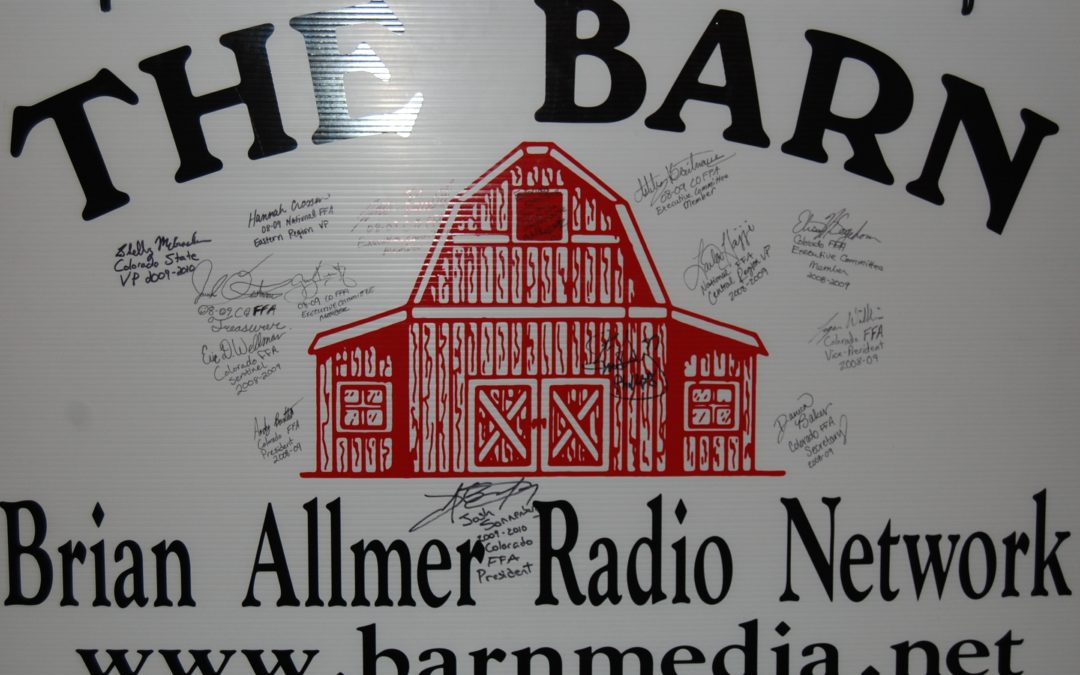
by Laura Lengnick | Jul 13, 2017 | Speaking
I had the great pleasure earlier today of visiting with Brian Allmer at the Barn. We got together to talk about my visit to Colorado at the end of this month. Brian and his wife Connie live on his family farm & ranch in Northeastern Colorado. Brian’s farm was named a Colorado Centennial Farm in 2016.
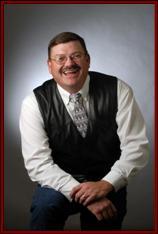
Brian Allmer
Brian is “the principle bottle washer,” as he puts it, and founder of Barn Media and the Colorado Agriculture News Network. Brian runs an awesome operation dedicated to covering the issues that matter to Colorado agriculture. “Barn Media & the Colorado Ag News Network’s mission,” says Brian, “is to provide accurate and factual information pertaining to any ag issue facing producers & agriculture entrepreneurs and then let the listener or webpage visitor make up their own minds based on the facts on the discussions presented to them.”
During our visit before the interview, Brian’s deep knowledge, abiding respect and genuine love for agriculture and the people in agriculture, especially young people, really shone through. I learned that he is the “Official Livestock Announcer” at both the Colorado State Fair and the National Western Stock Show. Brian has also served as a board member of the Colorado Future Farmers of America and 4-H Foundations. And he is co-founder and coordinator of the Briggsdale Classic Open, an annual stock show that has rapidly become a “must” for 4H and FFA youth involved in exhibiting market beef, lambs and goats.
We had a great conversation today about the new risks and opportunities created by climate change. “Climate risk” is increasing agricultural risks across the board – production, marketing, legal/regulatory, financial and human.
Although Colorado producers are masters at managing the risks associated with changing weather cycles and extremes of weather, these kinds of weather challenges are likely going to come faster and be more intense in coming years. Climate risk is something new. Practices that have worked in the past to manage weather-related risks will become less successful over time.
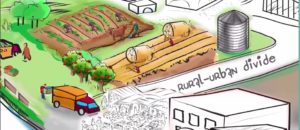
City region food systems bring urban and rural people together for mutual benefit. Credit FAO
We also discussed a new idea that holds a lot of opportunity for agriculture. The “City Region Food System” is a sustainable development idea that is rapidly gaining traction around the world. Simply put, this solution changes the nature of the relationship between urban and rural areas from one that is exploitive to one that is mutually beneficial. Rural areas are recognized as providing services essential to the health and well-being of urban areas and are remunerated accordingly. Instead of being viewed as a source of additional raw materials, rural areas are viewed, for example, as a source of high quality food, clean water and air, open space, beautiful landscapes, and living expressions of place-based tradition. Rural areas can also contribute significantly to regional climate change solutions, by storing carbon in soils, reducing flooding, and providing many other mitigation and adaptation benefits to both rural and urban communities.
One of the real joys of my work these days is the opportunity to visit with all sorts of good people working in agriculture and food systems, all across the U.S. and beyond. We don’t always agree on the problems or the solutions, but we all share a deep love for the land and the people who care for the plants and animals that feed us. Thank you, Brian Allmer, for a great visit to the Barn. I look forward to catching up with you again real soon!
You can hear the full interview at BARN ONAIR & ONLINE 24/7/365.

by Cultivating Resilience | Nov 16, 2016 | Speaking
I spent 5 days talking about Resilient Agriculture in central New York the early part of this month on the SUNY-Cobleskill campus and at the Farmer’s Museum Annual Conference on Food and Agriculture in Cooperstown. I enjoyed visiting with students in the agriculture and natural resources program at Cobleskill to talk about how dairy and beef producers can prepare for changing climate conditions, how to manage for resilience in food supply chain management, leading edge agricultural education strategies, and how to research and write about sustainable food issues. I thoroughly enjoyed the conversation at the evening reception and book signing, and my public presentation, Climate Change, Resilience and the Future of Food was standing room only! The evening events were made even more special because Resilient Agriculture farmers Jim and Adele Hayes were able to attend. I also enjoyed a visit with Jim and Adele at Sap Bush Hollow Farm to catch up on all the latest news, including their most recent venture taken on by their daughter Shannon and her husband Bob – the Sap Bush Hollow Cafe in West Fulton, NY.
This year’s Annual Conference on Food and Farming, hosted by the Farmers Museum in Cooperstown. The museum’s collection of 23,000 artifacts reflect 19th century farm life in central New York. The conference focused on the impacts of climate change on farming in central New York. I kicked off the day long meeting with a keynote on Climate Change, Resilience and the Future of Food and finished the day with a New Times, New Tools workshop for farmers that presented the results of my research with award-winning sustainable farmers and ranchers in the U.S. and new management practices that a proven to reduce climate risk.




 At UVM on Wednesday, I’ll focus on applications of resilience science to farm and food system education, research and development programs, where I will also meet with faculty and staff working in the
At UVM on Wednesday, I’ll focus on applications of resilience science to farm and food system education, research and development programs, where I will also meet with faculty and staff working in the 




Recent Comments